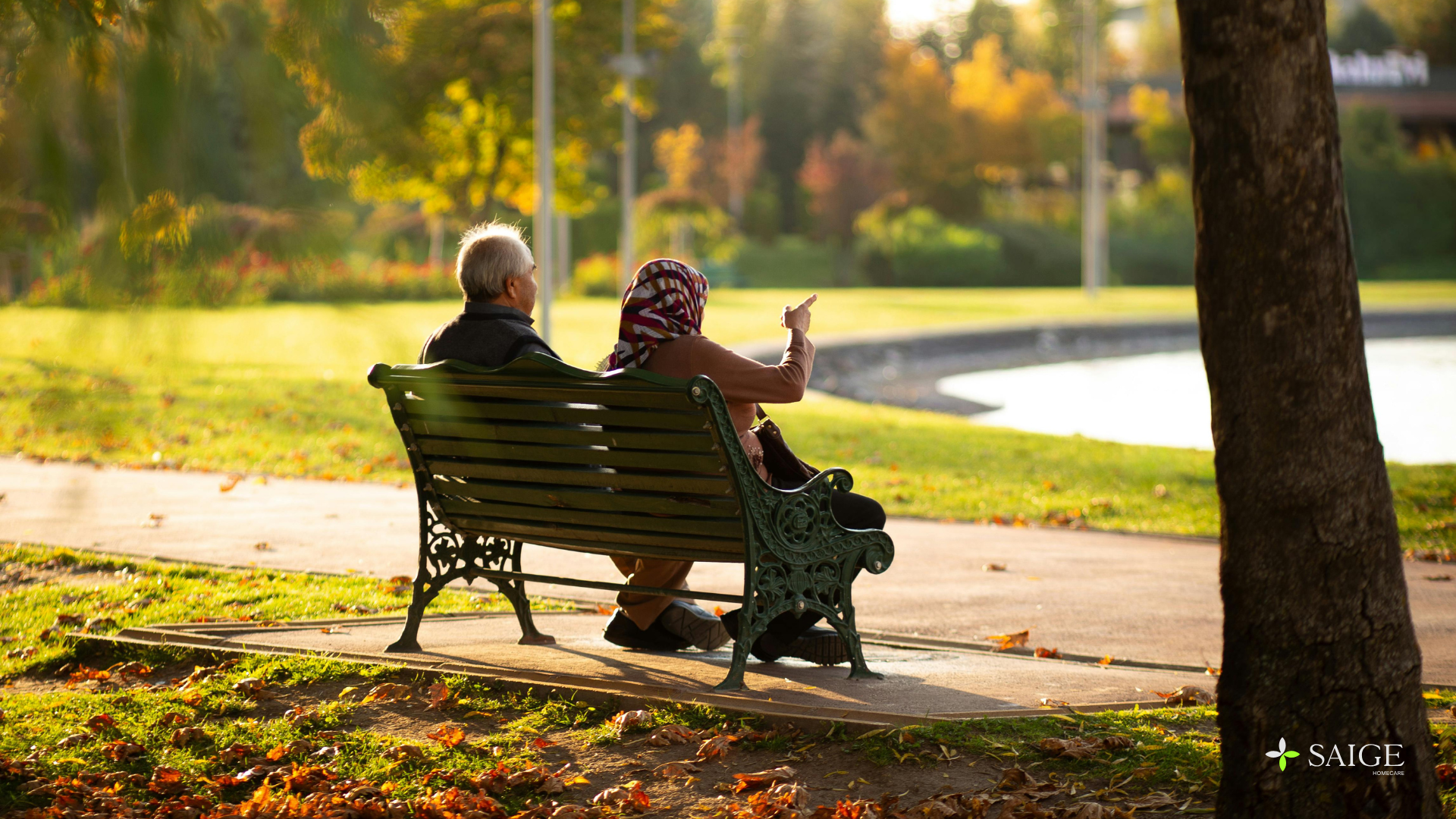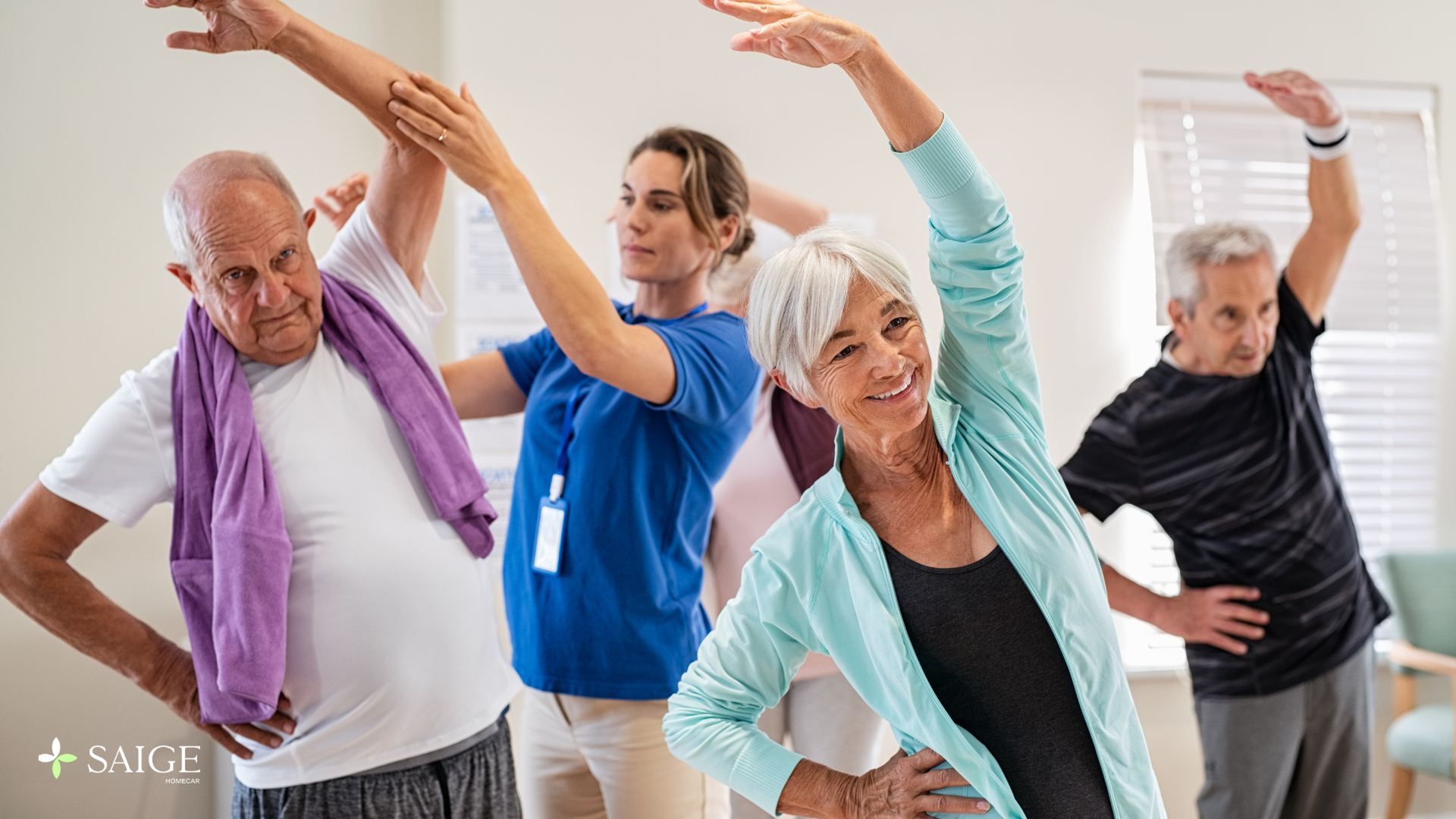Are you ready to help seniors stay healthy and safe this winter? Cold weather can bring more than just the flu—it increases the risk of pneumonia, heart problems, and falls on icy surfaces. It’s also a time when feelings of loneliness can increase. That’s why it’s so important to give extra care during these months. By focusing on warmth, safety, and staying connected, you can make sure seniors stay comfortable and well. Here are 15 essential winter health tips to keep them strong and healthy all season long.
15 Essential Winter Health Tips for Seniors
Here are 15 essential winter health tips to help seniors stay healthy and safe. Use these tips to make sure seniors stay comfortable and well through the winter months.
1. Dress for Winter
In winter, dressing is more than a fashion choice—it’s a health essential. Seniors are at a higher risk for hypothermia, with 50% of hypothermia-related deaths occurring in people over 65. Let’s keep you warm and safe!
Smart Dressing Tips:
- Layer, layer, layer: Start with a thin, moisture-wicking base layer. Add a warm middle layer (like fleece), and top it off with a waterproof outer layer.
- Don’t forget the extremities: Wear warm socks, insulated boots, gloves, and a hat. You lose a lot of heat through your head and hands!
- Indoor comfort: Even at home, keep a cozy sweater or blanket handy. It’s easier to take off a layer than to warm up a chilly room.
Pro Tip: Invest in thermal underwear. It’s thin enough to wear under regular clothes but makes a big difference in keeping you warm.
2. Temperature Management at Home
Keeping your home warm during winter doesn’t mean you have to overuse your heating system. With a few simple strategies, you can stay comfortable while saving energy.
Thermostat Settings
Set your thermostat between 68-72°F (20-22°C) for the best balance of warmth and efficiency. A programmable thermostat can help maintain this temperature automatically, lowering it when you’re asleep or away and warming up before you return.
Use Draft Stoppers
Drafts under doors let cold air in and warm air out. Place draft stoppers or “door snakes” at the base of doors, especially exterior doors, to block drafts and keep the house warmer without turning up the heat.
Seal Windows and Doors
Cold air often sneaks in through gaps around windows and doors. Use weather stripping or caulking to seal any drafts. This will keep the warmth inside and reduce the need for constant thermostat adjustments.
Curtain Management
At night, keep curtains closed to add insulation and hold warmth inside. During the day, open them to let sunlight in and naturally warm your space.
By following these simple steps, you can keep your home cozy and reduce heating costs throughout the winter.
3. Keep Moving: Indoor Exercise for Seniors
Just because it’s cold outside doesn’t mean you should stop moving! Staying active is crucial for preventing the muscle stiffness and joint pain that often comes with winter inactivity.
Why Exercise Matters:
- Improves circulation
- Maintains flexibility
- Boosts mood and energy levels
- Reduces the risk of falls
Safe Indoor Exercises

Remember, always check with your doctor before starting a new exercise routine. Start slow and listen to your body.
4. Nutrition Tips for Seniors to Stay Healthy in Winter
Eating right is important year-round, but winter brings some special nutritional needs for seniors. About 40% of older adults experience vitamin D deficiency during winter months, which can affect bone health and immune function.
Winter Nutrition Tips
- Focus on vitamin D: Include fatty fish, egg yolks, and fortified foods in your diet.
- Stay hydrated: Aim for 8 cups of fluids daily. Warm soups and herbal teas count!
- Eat colorful fruits and veggies: They’re packed with immune-boosting vitamins.
- Choose warm, hearty meals: Think stews, casseroles, and roasted vegetables.
Bonus Tip: Make extra portions when cooking and freeze them for easy, nutritious meals later.
Remember, a balanced diet is key to staying healthy all year round. If you’re concerned about your nutrition, talk to your doctor or a registered dietitian.
5. Stay Safe: Preventing Falls
Winter’s icy conditions can make falls more likely, and for seniors, falls can be serious. A lot of seniors experience falls during colder weather. Let’s keep you steady on your feet!
Fall Prevention Strategies:
- Wear the right shoes: Non-slip soles are a must. Avoid smooth-soled shoes or high heels.
- Use walking aids: If you have a cane or walker, make sure it has rubber tips for better grip.
- Clear your paths: Keep walkways free of snow and ice. Ask for help if shoveling is difficult.
- Take it slow: No need to rush. Small, careful steps are better than big strides.
Indoor Safety:
- Remove clutter from floors and stairs.
- Secure loose rugs or remove them entirely.
- Install grab bars in the bathroom.
- Ensure good lighting throughout your home.
6. Guard Against Winter Illnesses
Cold weather can be tough on the immune system, especially for seniors. Here’s how to stay healthy:
Tips to Boost Your Immune System:
- Get vaccinated: Flu and pneumonia shots are crucial for seniors.
- Wash your hands: Frequent hand washing helps prevent the spread of germs.
- Stay warm: Cold temperatures can stress your body and lower immunity.
- Get enough sleep: Aim for 7-9 hours of quality sleep each night.
Important: If you feel unwell, don’t hesitate to call your doctor. Early treatment can prevent minor issues from becoming serious.
7. Home Safety: Heating and Power Outages
Winter storms can lead to power outages and heating issues. Being prepared is key to staying safe and comfortable.
Preparation Tips:
- Check your heating system: Have it inspected before winter hits.
- Install carbon monoxide detectors: These are crucial if you use gas heating.
- Prepare an emergency kit: Include flashlights, batteries, blankets, and non-perishable food.
- Know your neighbors: They can be a great support system during emergencies.
Safe Heating Practices:
- Never use your oven to heat your home.
- Keep space heaters at least 3 feet away from anything flammable.
- If using a fireplace, have your chimney cleaned annually.
8. Winter Travel: Staying Safe on the Road
If you need to travel during winter, safety should be your top priority. Here’s how to prepare:
Car Maintenance:
- Check your battery, antifreeze, wipers, and tires.
- Keep your gas tank at least half full to prevent freezing.
- Pack an emergency kit in your car.
Driving Tips:
- Avoid driving in severe weather if possible.
- If you must drive, go slow and increase your following distance.
- Consider taking a winter driving course to refresh your skills.
Remember, there’s no shame in asking for a ride or using alternative transportation when conditions are bad.
9. Monitor Medications
Seniors should have a sufficient supply of their medications before winter storms or bad weather hits. Some medications can impact how the body regulates temperature, so it’s important to consult a healthcare provider to ensure they’re safe in colder weather.
How to Help:
- Double-check that seniors have all necessary medications on hand.
- Store medications properly to ensure they remain effective during colder months.
- Speak with their doctor about any medications that may interfere with their body’s ability to stay warm.
10. Plan for Grocery Deliveries
Snow and ice can make grocery trips dangerous for seniors, especially if they have mobility or respiratory issues. By planning ahead, seniors can avoid unnecessary outings during harsh winter conditions.
How to Help:
- Set up a grocery delivery service for essential items like fresh produce, canned goods, and over-the-counter medications.
- Help seniors stock up on non-perishable foods and essentials before a snowstorm or cold spell.
- Offer assistance by picking up groceries or enlisting the help of friends and neighbors.
11. Check for Carbon Monoxide Risks
Many seniors rely on gas appliances or fireplaces to stay warm during winter, which can pose a risk of carbon monoxide poisoning if not properly maintained. Seniors with heart or respiratory conditions are particularly vulnerable to its harmful effects.
How to Help:
- Install or check carbon monoxide detectors in the home, ensuring they’re working properly.
- Schedule maintenance for gas appliances and fireplaces before winter.
- Keep heating systems well-ventilated to reduce the risk of carbon monoxide buildup.
12. Review Emergency Plans
Winter power outages can be difficult for seniors, especially those with chronic conditions like diabetes or heart disease. Seniors must be prepared for unexpected situations.
How to Help:
- Review emergency plans with seniors, including evacuation routes and contact information.
- Prepare an emergency kit with necessary medications, blankets, batteries, flashlights, and non-perishable food.
- Have a backup plan for accessing medical devices or transportation during power outages.
13. Limit Alcohol and Caffeine
Alcohol and caffeine can lead to dehydration, which can be dangerous in winter. Alcohol may create a false sense of warmth, while caffeine can raise heart rates—both of which can impact seniors negatively.
How to Help:
- Encourage seniors to limit their intake of caffeinated drinks and alcohol during winter.
- Suggest healthier alternatives like water, herbal teas, or decaffeinated options.
- Ensure that seniors are staying hydrated, as dehydration is still a risk even in colder months.
14. Humidify the Air
Cold, dry winter air can irritate the respiratory system and cause skin dryness. Seniors with asthma, COPD, or sensitive skin conditions like eczema may find winter air particularly uncomfortable.
How to Help:
- Use a humidifier to maintain indoor air moisture levels between 30-50%.
- Clean the humidifier regularly to prevent mold or bacteria from developing.
- Encourage seniors to use moisturizers regularly to prevent dry, cracked skin.
15. Boost Your Mental Health: Stay Connected
Feeling blue during the winter months is common, especially for seniors. About 43% of older adults report feeling lonely, which can lead to seasonal depression. Here’s how to keep your spirits high:
Tips for Staying Connected:

Remember, staying connected as a senior isn’t just about fun—it’s about your health. Studies show that socially engaged seniors have better mental health outcomes.
Stay Safe with These Winter Health Tips for Seniors
Ensuring the health and well-being of seniors during the winter months requires a proactive approach. By addressing specific challenges like temperature regulation, nutrition, safety, and social engagement, it’s possible to significantly improve their quality of life.
Keeping their environment comfortable, promoting physical activity, and encouraging social connection can help seniors stay healthy and strong this season. Thoughtful planning and seeking support from community resources or professional services when needed will help seniors thrive and enjoy the winter months safely and happily.
Related Reads
Integration of Mental Health Awareness in Home Care Services in Calgary
The Importance of Social Interaction in Home Care Settings
FAQs on Winter Health for Seniors
How can I tell if I’m getting enough vitamin D in winter?
Symptoms of vitamin D deficiency include fatigue, bone pain, and muscle weakness. If you’re concerned, ask your doctor for a blood test to check your levels.
Is it safe for seniors to shovel snow?
Snow shoveling can be risky for seniors due to the cold air and physical exertion. It’s best to ask for help or use a snow removal service.
How often should I exercise during winter?
Aim for at least 30 minutes of moderate activity most days of the week. This can be broken up into shorter sessions throughout the day.
What should I do if the power goes out during a winter storm?
Stay warm with layers of clothing and blankets. If the outage lasts more than a few hours, consider going to a warming center or staying with family or friends.
How can I combat feelings of loneliness during winter?
Stay connected through regular phone calls or video chats, join online community groups, or consider adopting a pet if you’re able to care for one.
Remember, your health and safety are important. If you have any concerns about your winter health plan, don’t hesitate to discuss them with your healthcare provider. Stay warm, stay active, and enjoy the winter season!
What temperature is too cold for seniors?
To prevent hypothermia, the thermostat in the home of any senior over the age of 75 should never be set below 65 degrees.
What temperature should a house be for a 70 year old?
In any event, according to all reports, the ideal indoor temperature for the elderly in a living room should be at 21°C or 70°F above while in a bedroom, at least 18°C, or 64°F. For a bathroom, it would do well if it’s within the range of 22°C to 24°C or 71°F to 75°F.
Is AC good for old age?
As the elderly take a lot of time to regulate their temperature than the young, they are prone to dehydration heat stroke, and other associated heat-related diseases. The air conditioners conserve the appropriate interior weather and mitigate risks associated with those illnesses. Thus, AC is essential for elderly persons.


